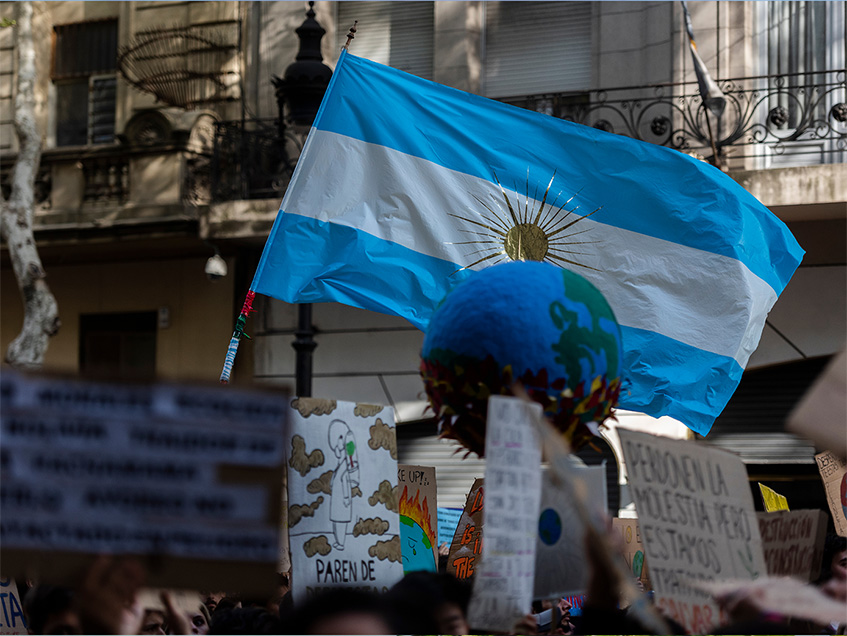Publications
Navigating contradictions: perceptions of climate action progress and obstruction in Argentina
22/7/25

The Argentine flag is seen behind a replica of planet Earth during the third international march for climate change in Buenos Aires in 2019. Photo credit: Matias Lynch via Shutterstock
Latin America is called to play a central role in the decarbonization of the world economy. The large strategic resources of the region appear both as an object of the deepening of extractive processes and as a potential contribution to the green economy. In the case of Argentina, contradictory trends emerge from the coexistence of a pledge to reduce greenhouse gas emissions by 2030 and a strategic reliance on the agricultural and energy sectors as key drivers of economic development. We focus on obstruction strategies that impede or delay climate policies and the energy transition. From a perspective centred on actors’ perceptions and based on semi-structured interviews with a diverse array of stakeholders, carried out between 2022 and 2023, we seek to answer the following questions: What is the state of climate action in Argentina? Who are the main obstruction actors and what are their strategies and discourses? We show that most actors perceive that the progress of Argentine climate action is incipient and lacks comprehensiveness and coordination while the main obstructionist forces are specific economic actors who lobby against particular policies in a context of narrative disputes that pit the climate issue against the imperatives of economic growth.





Watch the video here:


